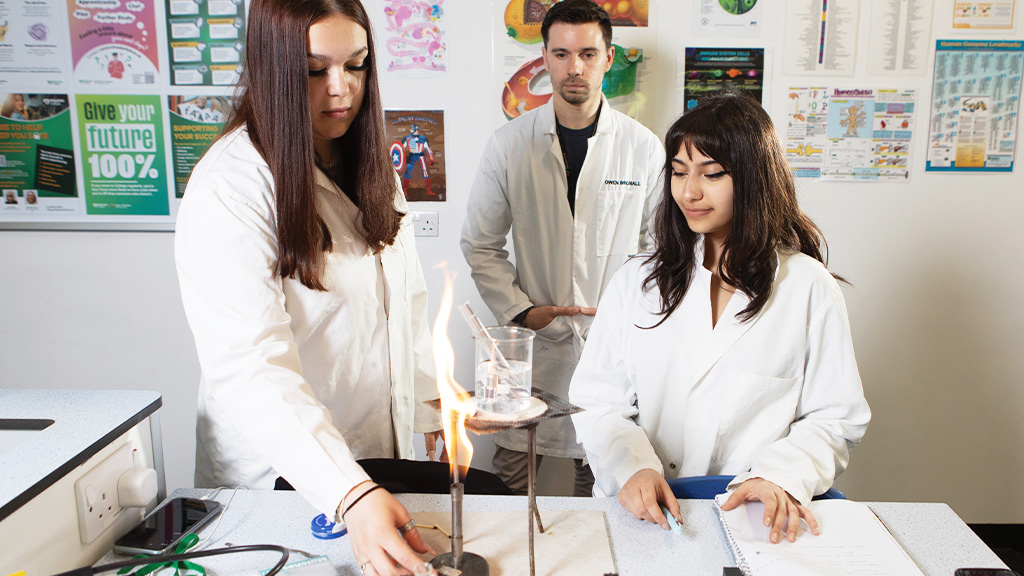Course Overview
This course can either be studied at Wakefield College or Selby College.
We live in an age where chemistry-based technology will be critical to our future success and even survival; the rapid development and production of low or zero carbon emission energy sources, transport technologies and commercially useful but environmentally sustainable materials will be vital over the next few decades.
This course will help you understand the structure of materials, the way different substances behave and react with each other and how new products are developed. It is particularly suitable for anyone with an interest in understanding science and how it affects the world around us, as the course contains a fascinating mix of topics that develop a variety of skills which are valued in many research and industrial sectors.
What You Will Study
A Level chemistry is made up of three broad topics:
- Physical chemistry: The nature of substances, how they react and behave, and how we can control this.
- Organic chemistry: The study of carbon-based substances, including those in living systems.
- Inorganic chemistry: Properties of elements and simple compounds and their patterns of behaviour.
During this course students will develop your practical skill, using a variety of specialist equipment in our dedicated Chemistry laboratory. A wide range of practicals are covered, designed to meet the requirements of the Practical Endorsement, develop understanding of practical applications and to support theory studied.
- How You Will Be Assessed
You will have three classes per week to cover the theory with various activities taking place within that time such as practicals, lectures with regular Q&A, peer tutoring using white boards and quiz games.
Throughout the course, your level of attainment will be gauged by regular tests and homework assignments. You will also build up a lab book of practicals completed, showing your competency to plan practicals, carry out a method safely, record and analyse data. This will be graded as pass/fail. Mock exams will take place at the halfway and pre-exam points to give an overall reflection of your progress as a whole whilst the main graded exams will be at the end of the course.
At the end of the A Level you will sit three papers (2 hours each):
Paper 1 - 105 marks counting for 35%. Topics include Inorganic Chemistry with relevant Physical Chemistry and some practical skills.
Paper 2 - 105 marks counting for 35%. Topics include Organic Chemistry with relevant Physical Chemistry and some practical skills.
Paper 3 - 90 marks counting for 30%. Topics include all practical skills and a general selection of all A level content.
- Entry Requirements
5 GCSEs at Grade 9-4, including English Language and Grade 6 in Maths.
PLUS
Dual Science at Grade 6/6.
OR
Separate Sciences, Grade 6 in Chemistry.
- Further Study
A Level Chemistry provides knowledge and development of transferrable skills, including problem solving, teamwork and research, to prepare students for further study and a range of careers. This includes careers in engineering, science research, environmental sciences, medicine and pharmacology.
The majority of our students progress onto a relevant university degree.
It is also highly valued for entry to the following: Medical Sciences, Zoology, Environmental Studies and Engineering (civil, mechanical or aeronautical).
Chemistry is regarded as a 'facilitating subject' which will increase your chances of progression to a Russell Group University.




